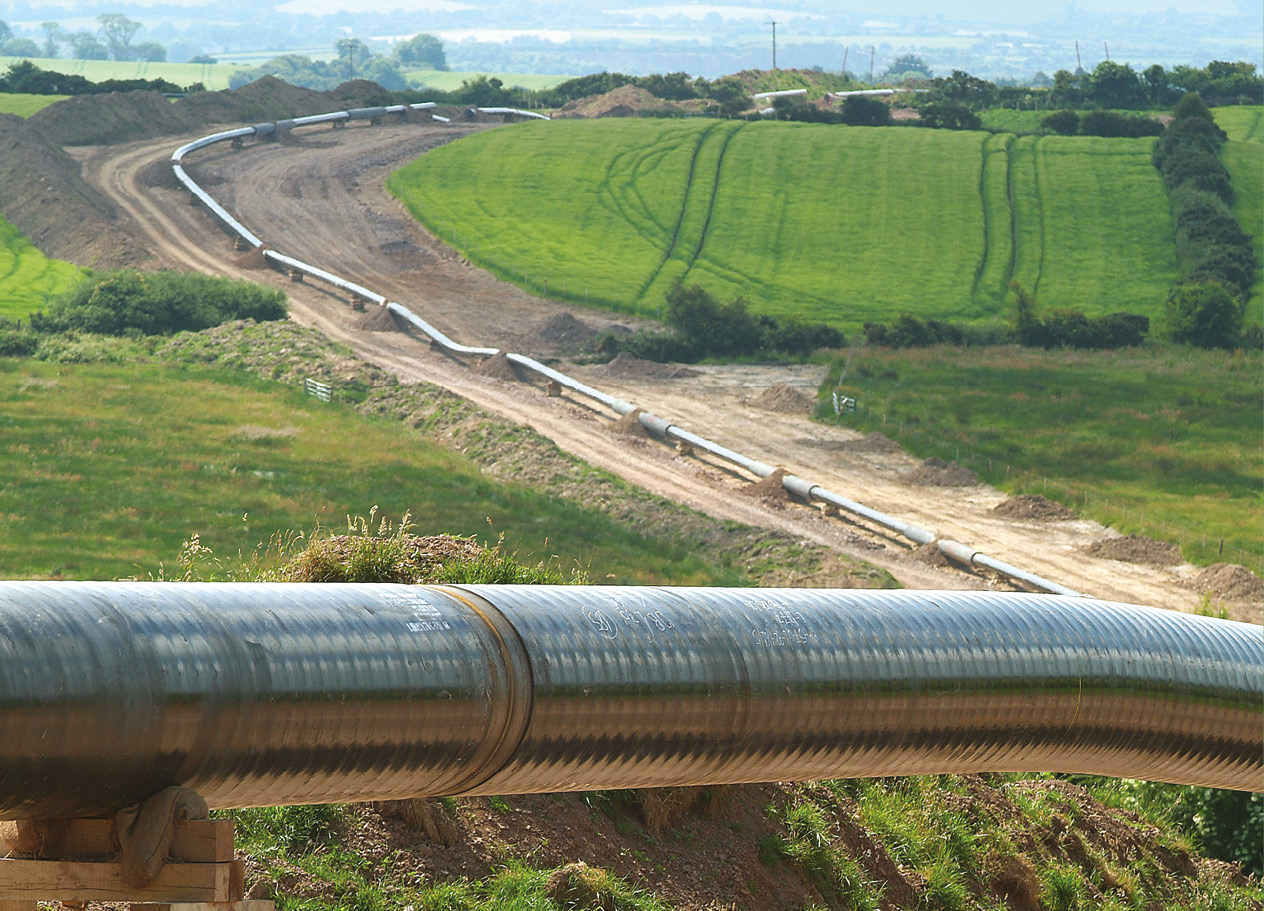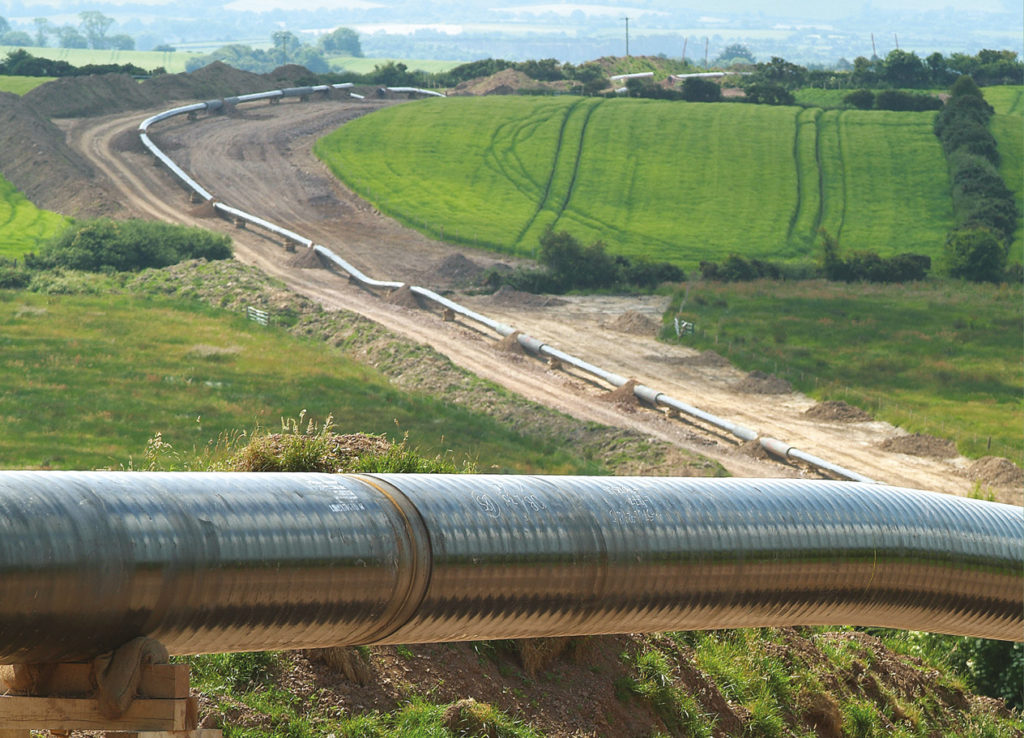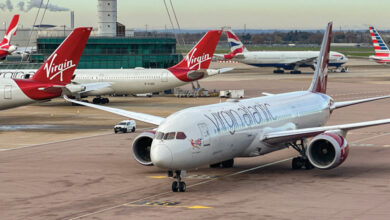Brexit’s potential impact on Ireland’s security of gas supply

Ireland must look beyond the UK if it is to secure competitively-priced natural gas beyond Brexit.
Ireland’s security of gas supply could come under severe strain in a post-Brexit world, according to Oxford Institute of Energy Studies’ Research Fellow Thierry Bros.
“This would be particularly the case if the UK geographically blocked supplies from the EU to Ireland,” he adds.
“The UK and Ireland have a long trade history pre-dating the EU. Ahead of an unknown Brexit outcome, Ireland must fully assess its options to continue to benefit from the advantages of the EU gas markets.
“In addition, under the EU security of supply regulation, the UK provides a great deal of security to Ireland. However, if the UK is not required to do so any longer, Ireland could be placed in a difficult situation.”
Bros believes that the upcoming Brexit negotiations could have an impact on the National Balancing Point (NBP)-Title Transfer Facility (TTF) spread.
“A possible outcome could be for the NBP premium to increase versus the TTF particularly in winter,” he says.
“In addition, with the NBP becoming a smaller regional hub, trades will be reduced. With financial services moving away from the UK, the NBP paper market could shrink. As a result, NBP volatility could increase compared to the TTF.”
In such circumstances, Bros suggests that the Irish Balancing Point (IBP) could move away from the NBP to the more liquid, less volatile and potentially cheaper TTF hub.
“It would also make much more sense for a eurozone country to trade its gas in euros and not in sterling. For Ireland to benefit from this move it needs to avoid ending up with a premium to the TTF.
“In addition, instead of trying to establish a new domestic hub to meet the EU Gas Target Model, the Irish regulator would need to state that the TTF would be the new proxy used everywhere in Ireland.
“Corrib gas would then be sold at just below TTF, which should be acceptable for the producer. The EU should favour this option which would have the interesting outcome of surrounding the UK gas market with the same price signal to both East and West.”
Bros can see a scenario unfolding, which would see Ireland having to buy gas from outside the UK under a TTF proxy and then using UK transportation as a transit route.
“As the UK is a member of the Energy Charter it is bound to follow the Energy Charter Treaty that addresses the complex political, economic and legal problems associated with energy transit.
“Irish buyers could, therefore, sign a contract with Norwegian producers for gas to transit via the UK, specifically from St Fergus to Moffat, and be priced under the TTF.
“Norwegian producers could be better off as they would be able to have TTF contracts for the EU, and NBP contracts for the UK and could make sure that they always provide the swing while benefitting from the highest possible revenues.
“In short, this would allow for a new segmentation of markets for Norway, which is currently not allowed under EU regulation, but which would be possible as soon as the UK leaves.
“This would also provide increased security of supply to Ireland once the Corrib field starts to decline around 2020.”
“In order to foster an integrated EU energy market, Brussels has drawn up a list of 195 key energy infrastructure projects, known as projects of common interest.”
Looking to the long-term, Bros points out that Ireland must increase its diversity of gas supply.
“That means reverting to the EU Commission,” he says.
“In order to foster an integrated EU energy market, Brussels has drawn up a list of 195 key energy infrastructure projects, known as projects of common interest.
“These are seen as essential projects for completing the European internal energy market and for reaching the EU’s energy policy objectives of affordable, secure and sustainable energy.
“Currently, the proposed Shannon Liquid Natural Gas terminal and 26km of connecting pipeline are included in the EU Commission’s priority list. This will need updating, once the UK leaves the EU, opening the way for Ireland to fast track the Shannon project.
“Financial support could also be secured from the Connecting Europe Facility. This EU funding instrument supports the development of high performing, sustainable and efficiently interconnected trans-European networks.
“Investments of this nature connect the missing links in Europe’s energy, transport and digital backbone. Once the final investment decision is taken, Irish utilities would then need to access liquid natural gas at TTF pricing.
“This could be done by buying it from a gas producer that would not see a major difference by berthing its cargo at Shannon or Gate terminal in the Netherlands.”
Bros believes that another solution, when it comes to securing Ireland’s long-term gas requirements would be to tease out fully the implications of EU Directive 2014/94/EU on the deployment of alternative fuels infrastructure. This states that liquid natural gas refuelling stations are to be installed in all 139 maritime and inland ports on the trans-European Transport (TEN-T) Core Network by 2025 and 2030 respectively. For Ireland, the relevant ports are Cork, Dublin and Limerick.
He adds: “Ireland could go for a cheaper Floating Storage Regasification Unit, instead of the usual onshore regas.
“In addition, an Irish utility could sign a deal with an EU company providing gas at the French or Spanish terminals to access reloaded product, while benefiting from the subsidies available under the EU trans-European network of Motorways of the Sea.
“The Irish solution to use the UK as a transit country could also be used by the UK vis-à-vis the EU. UK utilities could sign contracts with Russia based on NBP pricing for gas to be delivered in the UK using the EU as a transit country, with the Energy Charter guaranteeing the benefit from stable, predictable and non-discriminatory rules.
“In this case, the Regional Economic Integration Organisation clause would apply, meaning that transit should follow the same rules as transportation inside the EU.”
Bros concludes: “Maintaining the status quo may not be an option, but Ireland has different options to increase its future security of gas supply while avoiding excessive prices.
“An interesting one could be for the Irish regulator to acknowledge that TTF is the European index and to use this price signal for Ireland. The UK gas market would then be surrounded with the same price signal to both the East and the West.
“Instead of sourcing its gas on the UK hub, Irish utilities would then need to sign contracts with Norwegian producers for gas to be delivered in Ireland at a TTF price.
“This would see the UK being used as a transit country. Brussels, Dublin and Oslo could have the power to redesign North-West European gas markets where the UK as a transit country from Norway to Ireland gets a potentially different commodity price than surrounding countries.
“There must be a question as to whether the EU and Norway have the political will to confront the UK on this issue, particularly in light of the sensitivity of Brexit negotiations longer term.
“In addition, Ireland should turn to the EU Commission to fast track liquid natural gas regas options, so as to foster an integrated EU energy market, if the UK is not required to provide security of supply.”






